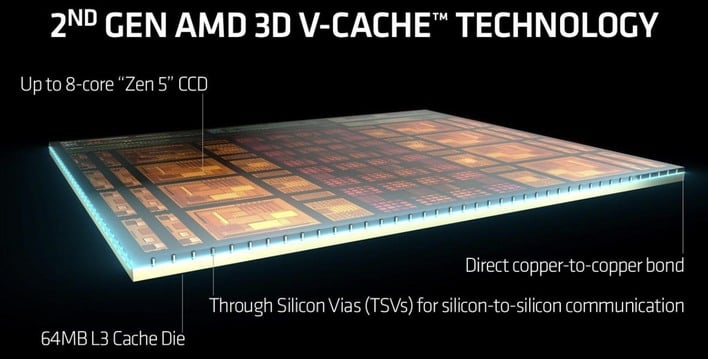AMD Faces Patent Lawsuit Over 3D V-Cache Hybrid Bonding In Ryzen X3D CPUs
Once upon a time, we would use the term "patent troll" to describe what are now more politely referred to as "Non-Practicing Entities", also known as "Patent Assertion Entities". These companies basically sit on broadly-defined patents that describe technology they did not innovate nor produce, and because the United States' IP law system is broken, they're allowed to sue companies that they decide are infringing on their IP.
Most of the time, these cases end in a settlement rather than going to trial. Back in 2023, Adeia "resolved litigation" with NVIDIA with an out-of-court settlement, and last year the company filed suit against The Walt Disney Company—the outcome of which is still pending. Adeia has also harangued Elon Musk's X over royalties on digital media patents. Before it was known as Adeia, the same group also targeted many Canadian telecom businesses, including Videotron, Bell Canada, Telus Corporation, Shaw Cablesystems, and Ericsson, as well as major tech entities like Samsung, Broadcom, Comcast, Netflix, and Virgin Media. As a reminder, Adeia does not produce or sell any products.
So what's going to happen now? Well, AMD has to decide how to respond to Adeia's claims. Legally speaking, Adeia has the advantage here. Unless AMD believes it can prove that Adeia's patents are invalid (likely quite a difficult battle, as the leadership of Adeia has decades of experience at exactly this endeavor), it's most likely that the chipmaker will settle out of court.
That's the ultimate goal of Adeia, and this tactic of suing the seller of infringing products is a classic "patent troll" tactic to get a quick payday. You see, while TSMC makes the components, suing them could be jurisdictionally complex, and the damages are much bigger when looking at final sales versus the manufacturing service fees that the foundry charged AMD. Plus, this suit against the 'customer' (of TSMC) puts pressure on both, because if this case goes to court and AMD found to infringe, it would set a legal precedent that every TSMC customer using these technologies is also infringing. In other words, Adeia is also suing TSMC, indirectly.
Adeia's CEO, Paul E. Davis, says "We are confident that pursuing this litigation is the right course of action to protect Adeia’s inventions, as well as the interests of our shareholders and customers," continuing, "While we continue to be open to reaching a fair and reasonable arrangement that reflects the value of our intellectual property, we remain fully prepared to pursue resolution of this matter through the courts to safeguard our rights and firmly believe in our ability to achieve a successful outcome."



